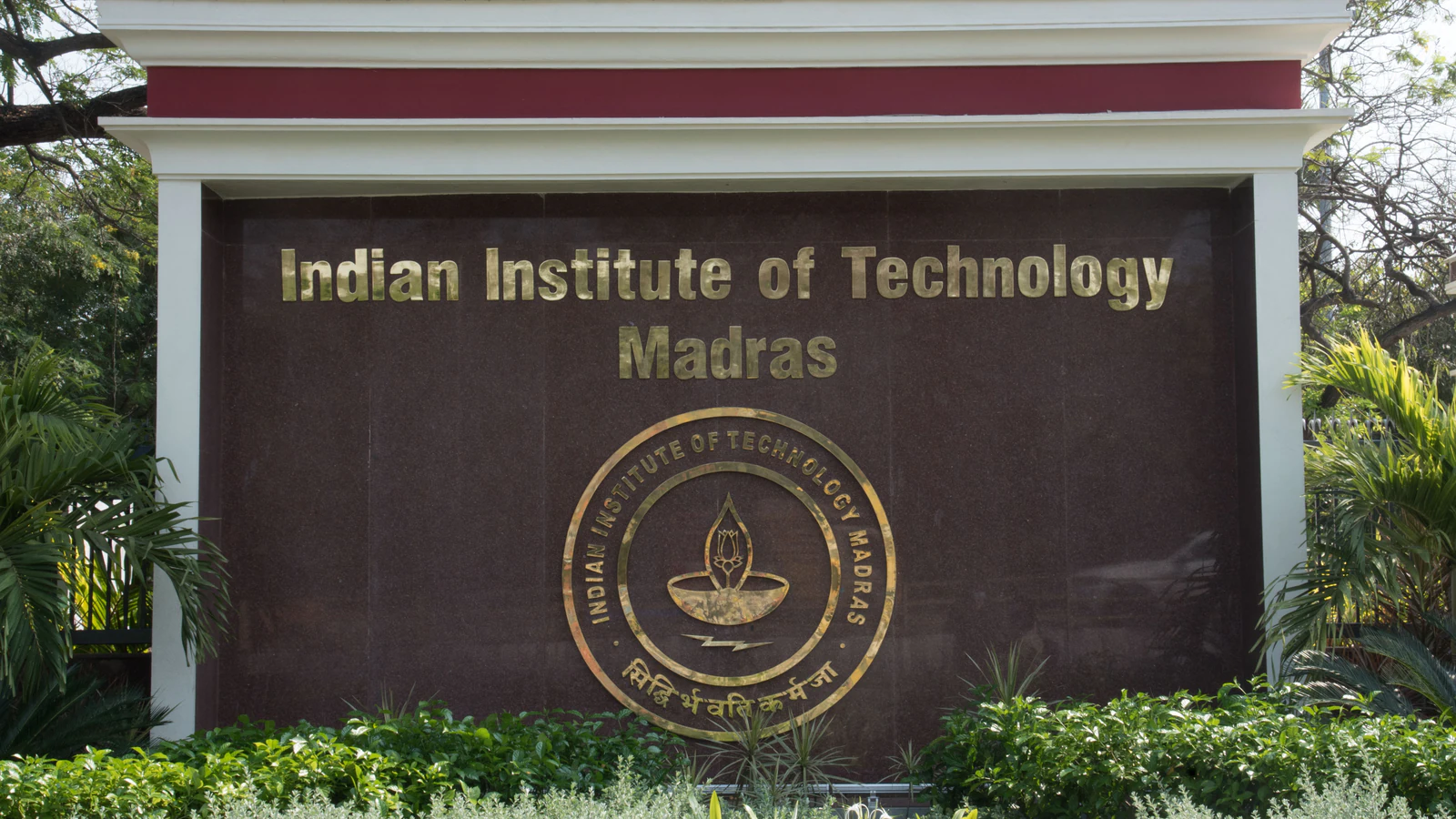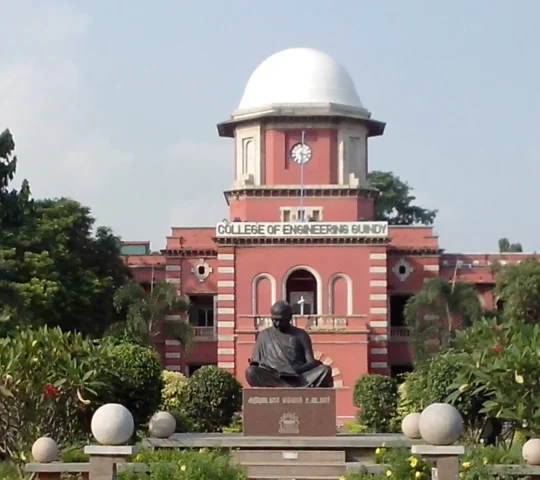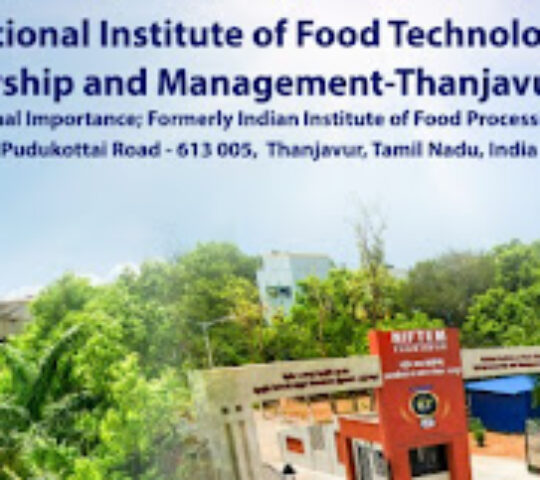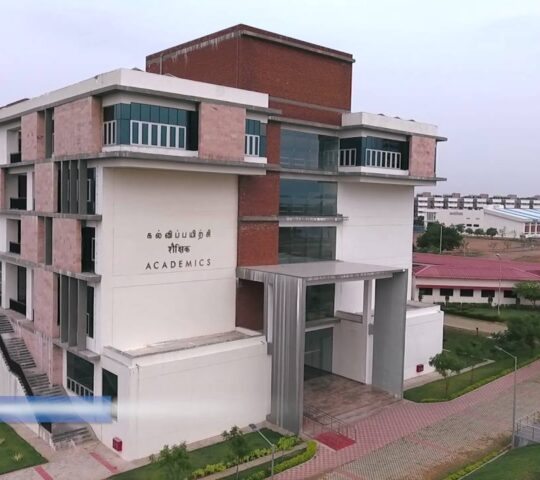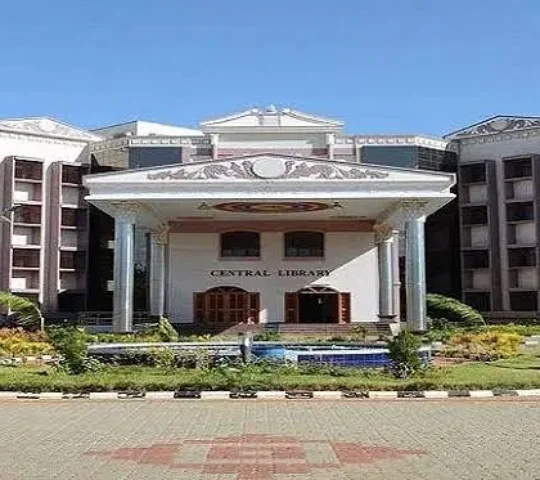Hightlight
-
 Auditorium
Auditorium
-
 Cafeteria
Cafeteria
-
 Computer Center
Computer Center
-
 Health Center
Health Center
IIT Madras Overview
The Indian Institute of Technology Madras (IIT Madras) was established in 1959 by the dedicated effort of the then Prime Minister of India, Shri Pandit Jawaharlal Nehru, in Madras (now Chennai), Tamil nadu. In 1961, it was declared an Institute of National Importance by the Parliament of India. It is situated on a sprawling 617 acres in a serene sylvan atmosphere with a mission to become a world-renewed institution. IIT Madras believes talents and good ideas can come from anywhere in society and the world, so it has students from every section of society and every part of the nation and the world.
By the agreement between India and the Government of the Federal Republic of Germany, IIT Madras received German professors, foremen, training facilities for 20 Indian professors, and scientific and technical equipment for workshops and 20 laboratories. In 1961, it was declared an Institute of National Importance by the Parliament of India.
It is situated on a sprawling 617 acres in a serene sylvan atmosphere with a mission to become world renewed institution and provide instruction and research in some branches of Engineering, advancement of knowledge through education and research in pure and applied sciences, engineering, and social science and humanities, and service to community and nation through intellectual and material resources.
IIT Madras believes talents and good ideas can come from anywhere in society and the world, so it has students from every section of the society and every part of the nation and the world. However, the departments and centers of the institute are responsible for teaching, researching, and industrial consultancy thereby disseminating its knowledge.
It follows a semester system, and each semester comprises a minimum of seventy instructional days, and evaluation is done by faculty since it is an autonomous institution. Its research work is reviewed based on a thesis by peer examiners from the nation and the world. Impertinently, academic programs of study are prepared by the senate, the highest academic body within the institute.
However, to balance the study, co-curricular activities and special lectures are arranged. Besides these, conferences, seminars, and workshops are organized where scholars from all over the world participate and create new ideas and inventions in the field of engineering and technology. Furthermore, IIT Madras has strong industrial relationships, therefore, it has many sponsors who sponsor the project of students which transforms new products from novel ideas.
IIT Madras highlights
| 1 | 15L | Government | Co-Ed |
| Ranked in NIRF | UG Median Salary | Ownership | Genders Accepted |
| 1959 | 6112 | 645 | 1799 |
| Estd. Year: | Campus Size: | Total Faculty: | Total Approved Intake: |
IIT Madras Placement and Salary Trends
| 15 L | 985 | 1.89 CR |
| UG Median Salary | Total Offers | Max Package |
IIT Madras Admissions
Admission Test
JEE (Mains & Advanced)
Programme Criteria
- • Higher Secondary Certificate 10+2 Eligibility With 75% (65% SC/ST) From An Accredited Board Of Education.
- • The Engineering Programmes Need Students Having A Background In Maths, Physics And Chemistry.
- • The Biology/Biotechnology Programmes Require Students To Have A High School Background In Biology.
Admissions
- • Students Need To Enroll In Both JEE Main And Advanced Exam.
- • Students Must Acquire An All India Rank (AIR) For Counselling Invitation.
- • Enroll In The Joint Seat Allocation Counselling Process (JoSAA)
- • Select IIT Madras As The Institution Of Choice.
- • Collect The Provisional Letter Of Admission
Documents Required
- • Students Need To Enroll In Both JEE Main And Advanced Exam.
- • 10+2 HSC Certificate
- • Community Or Caste Certificate
- • JEE Rank Card
- • Passport Size Photograph
Contact
FAQ's
What is the primary language of instruction for all the courses at IITM?
All accredited courses provided by the institution are only available in English, with no regard to the preferred regional languages that are highlighted.
Are they available in other regional languages for better understanding or not?
They are not available in any of the preferred regional languages as all the courses offered by the institution are taught only in English. This is applicable to both offline and online engineering aspirants.

